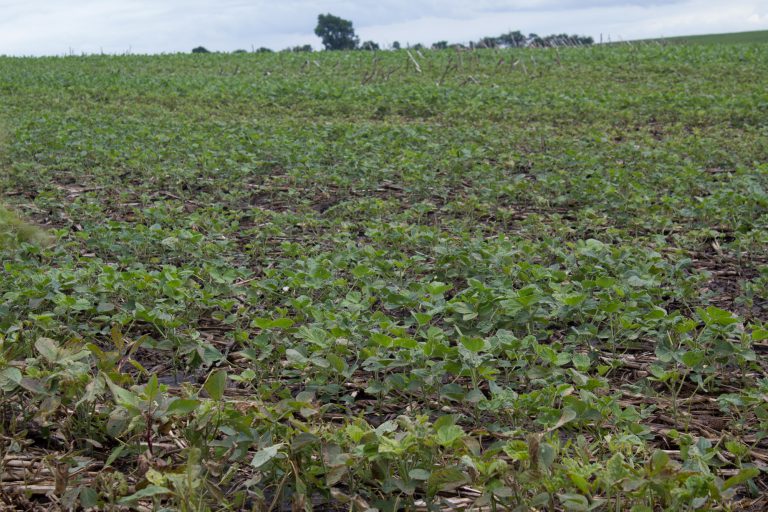Rising temperatures and carbon dioxide levels could have opposing effects on nutrients in soybeans, according to a new study.
About 2 billion people globally suffer from iron and zinc deficiencies, according to the World Health Organization. Many communities that deal with this problem rely on soybeans and other legume crops to be their source of essential nutrients. As a recent report from the White House noted, climate change will cause temperatures to rise past productive levels for corn and soybeans.
Scientists at the Danforth Center in St. Louis, the University of Illinois Urbana-Champaign and the U.S. Department of Agriculture examined the effects of raising carbon dioxide levels and temperatures by three degrees Celsius on soybean plants. They found that while carbon dioxide raised soybean yields and lowered iron and zinc levels, hotter temperatures lowered yields and raised mineral levels.
It’s unclear why the two environmental factors had such opposite effects, said Ivan Baxter, a Danforth Center researcher.
“They seem to be canceling each other out, but it’s not clear if they’re acting through the same mechanisms directly or whether it’s a combination of factors that happen to have the opposite effect,” Baxter said. “There’s a lot more we have to figure out if we’re going to predict what the future of food is going to look like.”
Previous research has demonstrated that increased carbon dioxide levels could lower nutritional content in crops. Baxter and his colleagues wanted to build on those studies by investigating the combined effect of that higher temperatures and carbon dioxide levels would have on crops.
Other researchers were skeptical of its findings. The authors should have looked more at the total amount of nutrients produced by the soybeans grown in the experiment, instead of focusing on nutrient levels among the plants, said Arnold Bloom, a University of California-Davis plant scientist.
“If you take into consideration the yield, you could have slight differences in concentration, but if you look at how much total amount of iron or zinc were present, it actually decreases with higher temperatures,” Bloom said.
Bloom co-authored a study in 2014 that found that increased carbon dioxide led to lower levels of minerals in several major crops.
The Danforth Center study also lacks evidence gathered from a variety of crops, said Kristie Ebi, a public health professor at the University of Washington. Ebi published a report last year that demonstrated how rising carbon dioxide levels would decrease levels of essential B vitamins and folic acid in rice.
Understanding how climate change will affect nutritional content of crops will continue to become more important as time goes on, she said.
“The overall nutritional quality of particularly wheat and rice, which are eaten by the vast majority of the world’s population, will decline,” Ebi said. “What [our study] showed is carbon dioxide concentrations expected later in the century could affect 600 million people in Asia.”
Baxter and his colleagues plan to replicate their study on more crop species and better understand how carbon dioxide and temperature levels interact with nutrients in plants.
Eli Chen is a science and environment writer at St. Louis Public Radio, which is a Harvest Public Media partner. Follow Eli on Twitter: @StoriesByEli

